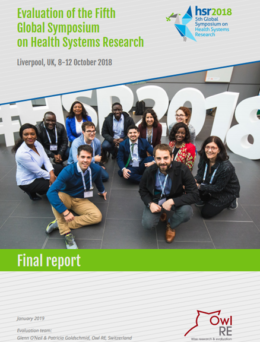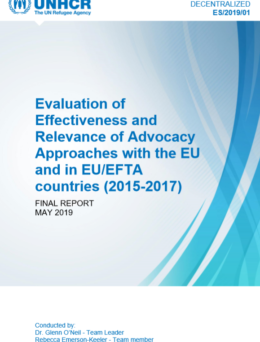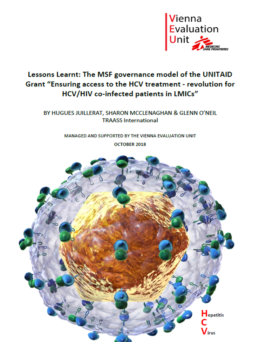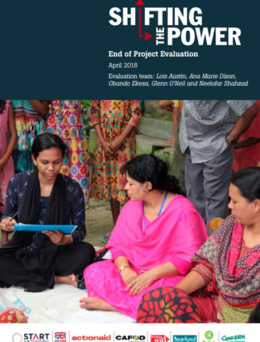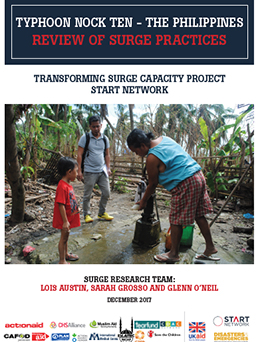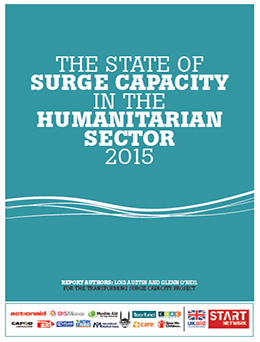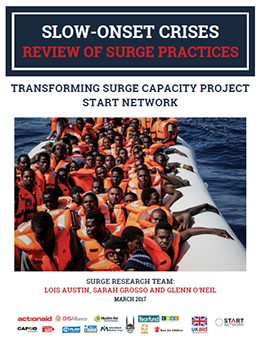Evaluation of the Fifth Global Symposium on Health Systems Research 2018
Owl RE carried out the evaluation of the Fifth Global Symposium on Health Systems Research (HSR2018), which was held in Liverpool, UK on 8–12 October 2018. The research conducted for the evaluation included a combination of quantitative and qualitative methods including an online survey, semi-structured interviews and observation. The report was used to provide feedback to key stakeholders and shape future HSR events.
Download file
